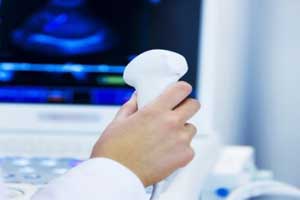- Home
- Editorial
- News
- Practice Guidelines
- Anesthesiology Guidelines
- Cancer Guidelines
- Cardiac Sciences Guidelines
- Critical Care Guidelines
- Dentistry Guidelines
- Dermatology Guidelines
- Diabetes and Endo Guidelines
- Diagnostics Guidelines
- ENT Guidelines
- Featured Practice Guidelines
- Gastroenterology Guidelines
- Geriatrics Guidelines
- Medicine Guidelines
- Nephrology Guidelines
- Neurosciences Guidelines
- Obs and Gynae Guidelines
- Ophthalmology Guidelines
- Orthopaedics Guidelines
- Paediatrics Guidelines
- Psychiatry Guidelines
- Pulmonology Guidelines
- Radiology Guidelines
- Surgery Guidelines
- Urology Guidelines
No survival benefits of Point-of-care ultrasonography in hypotensive patients in ED

Point-of-care ultrasonography (PCU) is not associated with improved clinical and survival outcomes over standard care without point-of-care ultrasonography for initial management of patients with undifferentiated hypotension in the emergency department (ED).
The study was published in the journal Annals of Emergency Medicine.
Paul R. Atkinson, staff physician, Department of Emergency Medicine, Saint John Regional Hospital, Saint John, New Brunswick, Canada, and colleagues to compare the effect of a PCU protocol versus standard care without PCU for survival and clinical outcomes.
Point-of-care ultrasonography protocols are commonly used in the initial management of patients with undifferentiated hypotension in the ED. There is little published evidence for any mortality benefit.
This international, multicenter, randomized controlled trial recruited from 6 centers in North America and South Africa and included selected hypotensive patients (systolic blood pressure <100 mm Hg or shock index >1) randomized to early point-of-care ultrasonography plus standard care versus standard care without point-of-care ultrasonography. Diagnoses were recorded at 0 and 60 minutes. The primary outcome measure was survival to 30 days or hospital discharge. Secondary outcome measures included initial treatment and investigations, admissions, and length of stay.
Follow-up was completed for 270 of 273 patients. The most common diagnosis in more than half of the patients was occult sepsis.
Key Results:
- There were no important differences between groups for the primary outcome of survival, survival in North America, and survival in South Africa.
- There were no important differences in rates of computed tomography (CT) scanning, inotrope or intravenous fluid use, and ICU or total length of stay.

Disclaimer: This site is primarily intended for healthcare professionals. Any content/information on this website does not replace the advice of medical and/or health professionals and should not be construed as medical/diagnostic advice/endorsement or prescription. Use of this site is subject to our terms of use, privacy policy, advertisement policy. © 2020 Minerva Medical Treatment Pvt Ltd